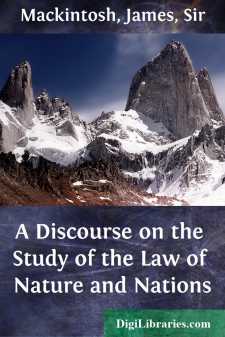Categories
- Antiques & Collectibles 13
- Architecture 36
- Art 48
- Bibles 22
- Biography & Autobiography 813
- Body, Mind & Spirit 142
- Business & Economics 28
- Children's Books 17
- Children's Fiction 14
- Computers 4
- Cooking 94
- Crafts & Hobbies 4
- Drama 346
- Education 46
- Family & Relationships 57
- Fiction 11829
- Games 19
- Gardening 17
- Health & Fitness 34
- History 1377
- House & Home 1
- Humor 147
- Juvenile Fiction 1873
- Juvenile Nonfiction 202
- Language Arts & Disciplines 88
- Law 16
- Literary Collections 686
- Literary Criticism 179
- Mathematics 13
- Medical 41
- Music 40
- Nature 179
- Non-Classifiable 1768
- Performing Arts 7
- Periodicals 1453
- Philosophy 64
- Photography 2
- Poetry 896
- Political Science 203
- Psychology 42
- Reference 154
- Religion 513
- Science 126
- Self-Help 84
- Social Science 81
- Sports & Recreation 34
- Study Aids 3
- Technology & Engineering 59
- Transportation 23
- Travel 463
- True Crime 29
Plutarch's Morals
by: Plutarch
Categories:
Description:
Excerpt
§ i. Come let us consider what one might say on the education of free children, and by what training they would become good citizens.
§ ii. It is perhaps best to begin with birth: I would therefore warn those who desire to be fathers of notable sons, not to form connections with any kind of women, such as courtesans or mistresses: for those who either on the father or mother's side are ill-born have the disgrace of their origin all their life long irretrievably present with them, and offer a ready handle to abuse and vituperation. So that the poet was wise, who said, "Unless the foundation of a house be well laid, the descendants must of necessity be unfortunate." Good birth indeed brings with it a store of assurance, which ought to be greatly valued by all who desire legitimate offspring. For the spirit of those who are a spurious and bastard breed is apt to be mean and abject: for as the poet truly says, "It makes a man even of noble spirit servile, when he is conscious of the ill fame of either his father or mother." On the other hand the sons of illustrious parents are full of pride and arrogance. As an instance of this it is recorded of Diophantus, the son of Themistocles, that he often used to say to various people "that he could do what he pleased with the Athenian people, for what he wished his mother wished, and what she wished Themistocles wished, and what Themistocles wished all the Athenians wished." All praise also ought we to bestow on the Lacedæmonians for their loftiness of soul in fining their king Archidamus for venturing to marry a small woman, for they charged him with intending to furnish them not with kings but kinglets.
§ iii. Next must we mention, what was not overlooked even by those who handled this subject before us, that those who approach their wives for procreation must do so either without having drunk any wine or at least very little. For those children, that their parents begot in drink, are wont to be fond of wine and apt to turn out drunkards. And so Diogenes, seeing a youth out of his mind and crazy, said, "Young man, your father was drunk when he begot you." Let this hint serve as to procreation: now let us discuss education.
§ iv. To speak generally, what we are wont to say about the arts and sciences is also true of moral excellence, for to its perfect development three things must meet together, natural ability, theory, and practice. By theory I mean training, and by practice working at one's craft. Now the foundation must be laid in training, and practice gives facility, but perfection is attained only by the junction of all three. For if any one of these elements be wanting, excellence must be so far deficient. For natural ability without training is blind: and training without natural ability is defective, and practice without both natural ability and training is imperfect. For just as in farming the first requisite is good soil, next a good farmer, next good seed, so also here: the soil corresponds to natural ability, the training to the farmer, the seed to precepts and instruction. I should therefore maintain stoutly that these three elements were found combined in the souls of such universally famous men as Pythagoras, and Socrates, and Plato, and of all who have won undying fame....










